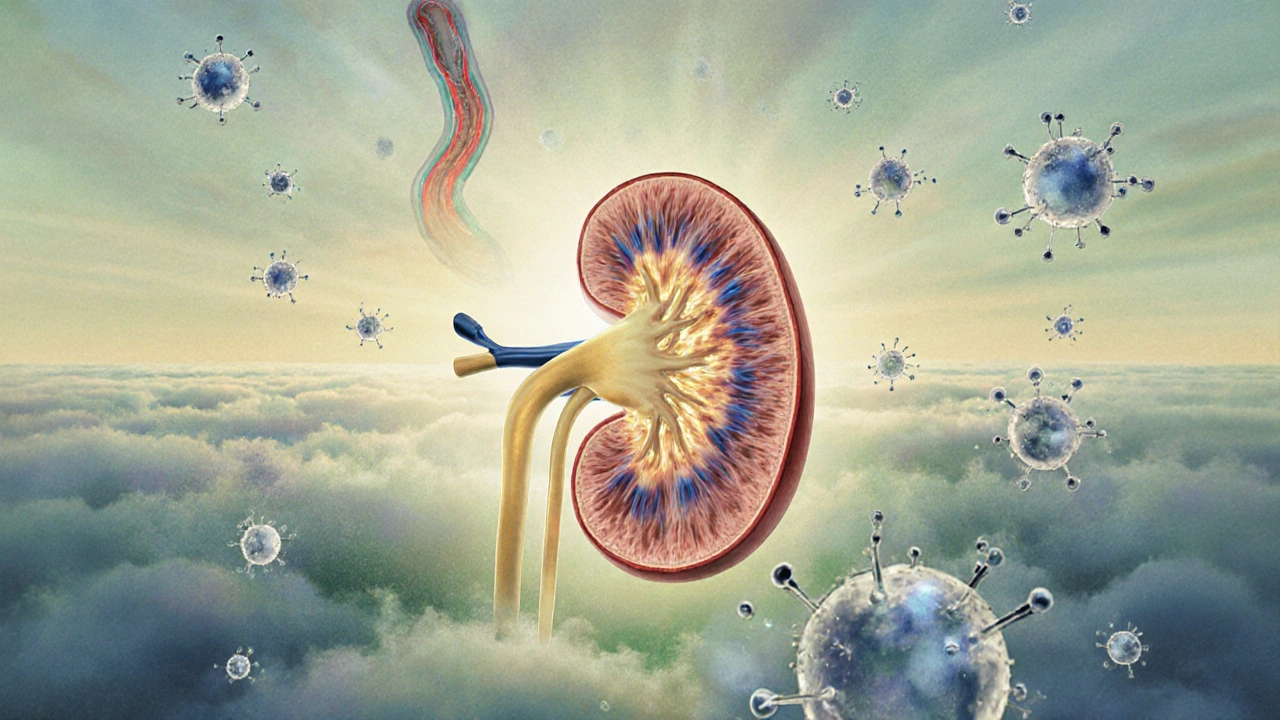Kidney Function Tests: What They Reveal and How to Understand Your Results
When your doctor orders kidney function tests, a group of blood and urine tests that measure how well your kidneys filter waste and maintain fluid balance. Also known as renal function tests, they’re one of the most common ways to catch early signs of kidney damage before you feel any symptoms. Unlike a cold or flu, kidney problems often sneak up quietly—by the time you’re swollen or tired, the damage might already be advanced. That’s why these tests matter: they give you a clear picture of what’s happening inside, even when you feel fine.
These tests don’t just check one thing. They look at several key markers: creatinine, a waste product from muscle breakdown that healthy kidneys remove efficiently, and blood urea nitrogen (BUN), a byproduct of protein digestion that builds up when kidneys slow down. Together, they help calculate your eGFR, estimated glomerular filtration rate, which tells you how well your kidneys are filtering blood. A normal eGFR is above 90; below 60 for three months or more signals chronic kidney disease. But numbers alone don’t tell the whole story—your age, muscle mass, and even race can affect them. That’s why doctors look at trends over time, not just one result.
Many of the posts in this collection tie back to kidney health in surprising ways. For example, anemia and kidney health are deeply linked—your kidneys make a hormone that tells your body to make red blood cells. If they’re failing, so does your oxygen supply. Diabetes and high blood pressure are the top two causes of kidney damage, and medications like Forxiga or dabigatran are used not just for their primary purpose but also because they can help protect your kidneys over time. Even something as simple as acetaminophen or nasal decongestants can stress your kidneys if you’re already at risk. You don’t need to be sick to care about these tests—you just need to be smart about your long-term health.
Understanding your kidney function test results isn’t about memorizing numbers. It’s about knowing what to ask your doctor, what lifestyle changes might help, and when to pay closer attention. These tests are your early warning system—and the more you know about them, the better you can protect your kidneys before problems get serious.

Cyclosporine Nephrotoxicity: How to Monitor Kidney Function and Drug Levels Effectively
Cyclosporine is critical for transplant patients but can damage kidneys if not carefully monitored. Learn how to track drug levels, recognize early signs of nephrotoxicity, and avoid dangerous drug interactions to protect your transplant long-term.
Read More




